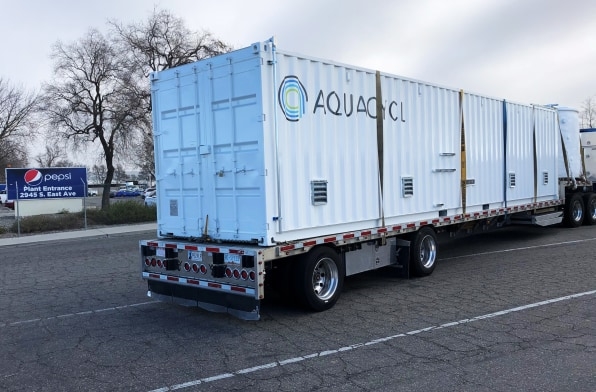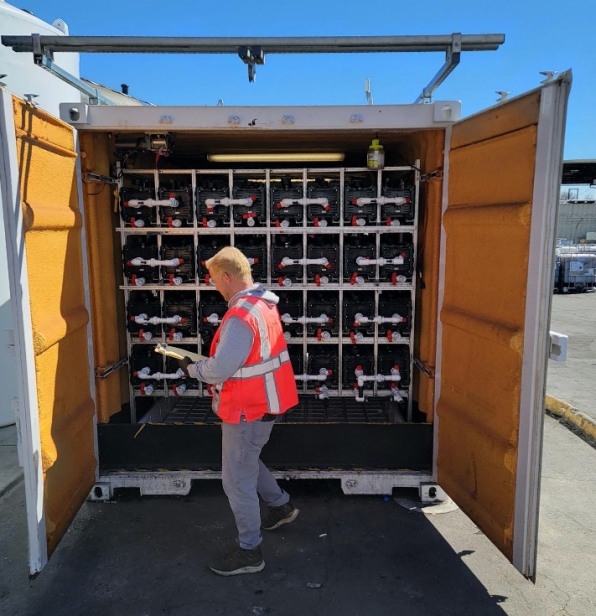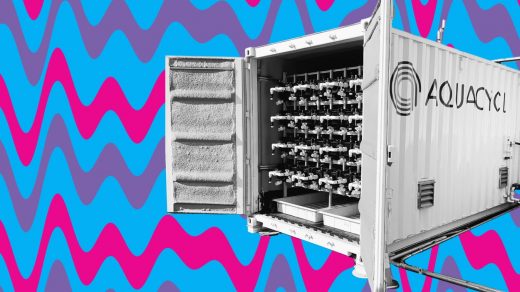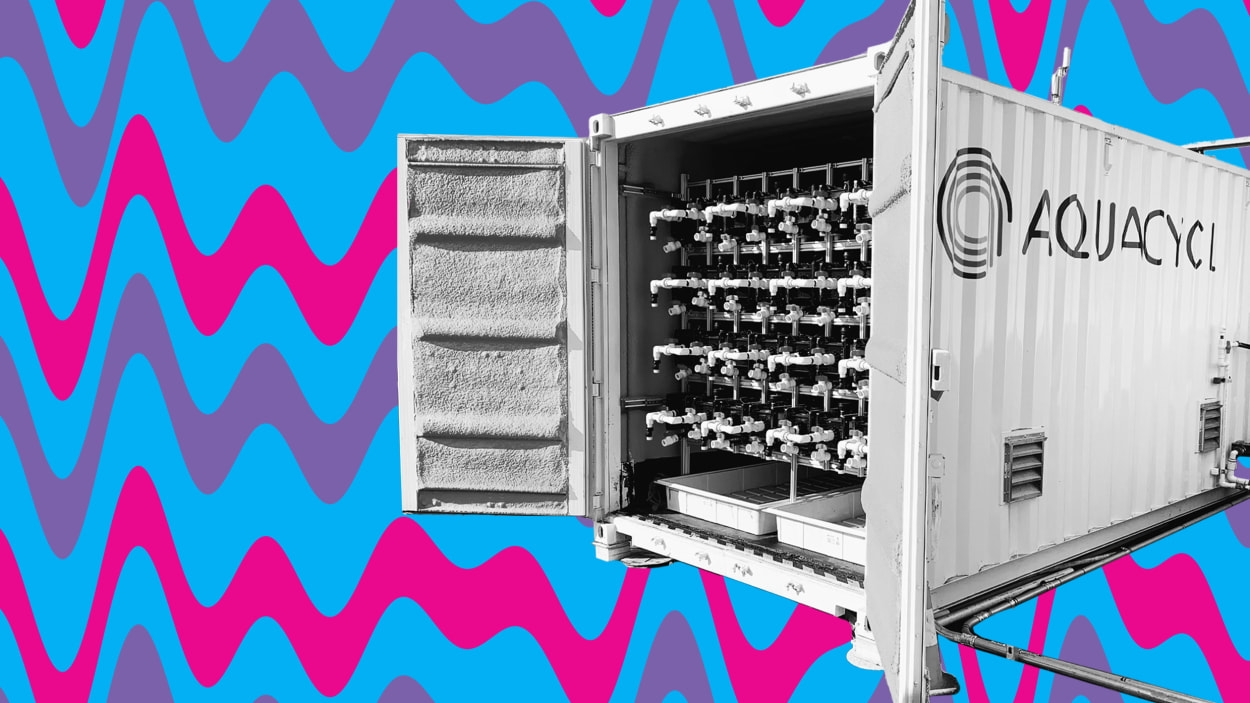This startup uses microbial fuel cells to clean up wastewater
This article is about one of the honorees of Fast Company’s Next Big Things in Tech awards for 2022. Read about all the winners here.
In a shipping container next to a PepsiCo bottling plant in Fresno, California, a startup called Aquacycl is working with the food giant to pioneer new technology that can help tackle one of the lesser-known sources of climate emissions: cleaning up industrial wastewater.
“Globally, water and wastewater treatment accounts for more greenhouse gas emissions than the entire shipping industry,” says Orianna Bretschger, Aquacycl’s CEO. Most of those emissions come from the energy used to run large wastewater treatment plants, where building-sized tanks process dirty water. The traditional system also generates sludge that often ends in landfills.
Aquacycl’s modular technology helps clean up contaminated water before it flows down the drain. In some cases, it can also be reused onsite after it’s cleaned. Inside the shipping container, hundreds of microbial fuel cells, each roughly the size of a car battery, use natural, locally-sourced bacteria to break down contaminants. The system can be sized up or down depending on the volume of wastewater, with the fuel cells attached together like Legos.

At the PepsiCo plant, which bottles everything from sodas and teas to energy drinks, the new system can help break down sugar when the liquid from expired or mis-bottled drinks is pumped into Aquacycl’s unit. As the microbes break down the sugars, they also naturally generate electricity that can be used to power sensors that monitor the system. (In the future, Bretschger says, it may also be possible to amplify the current so that it could be used to power other equipment at a factory.)
Others have tried to use microbial fuel cells to clean wastewater in the past but haven’t succeeded; Bretschger says that the modular system is part of what makes it work. “Everybody who’s tried to do this before has just tried to do bigger tanks and bigger electrodes, because you have to process a lot of volume,” she says. “But in doing that, you lose your efficiency to the point where it just didn’t work anymore.”

Aquacycl’s system is also designed to make the microbes work quickly. “We basically are giving the bacteria a nonstop treadmill,” she says. “That’s enabling us to provide treatments in a small footprint very efficiently, because we can do in hours what a conventional technology takes days to do.” For wastewater with very concentrated contaminants, like the sodas coming out of bottling plant, the process doesn’t fully clean the water. But when it’s sent to a wastewater treatment plant, it’s so much cleaner that it can reduce greenhouse gas emissions by 90%.
On average, the system at the Pepsi plant is eliminating 110 tons of greenhouse gas emissions per month. It also saves the company money because its bills from the utility have dropped. Pepsi pays Aquacycl a smaller service fee.
The Pepsi partnership is a big step for Aquacycl, which was founded in 2016 and still only has 15 employees. But it’s far from the only such arrangement: The startup is also beginning to work with other beverage companies, including Anheuser-Busch, which plans to use it at a craft brewery in Oregon. And it’s starting to work with other industries, including facilities at ports that store chemicals and have to deal with toxic wastewater. “Often they have to haul their wastewater somewhere else and go to another company to deal with it,” she says. “And that’s extremely expensive and energy intensive.” It could be used by a range of other companies, from textile producers to paper factories.
One challenge to scaling up is the fact that these industries are often slow to change. “It’s very difficult being a water technology company driving an industry that is risk averse—rightfully so—conservative, and slow to change,” Bretschger says. But as customers like PepsiCo are willing to try new solutions, it can demonstrate to others in the industry that this works. And to meet climate goals, she says, it will need to grow quickly.
(18)



